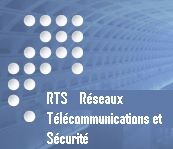DARPA Recognizes UMass Professor Hava Siegelmann for Major Advances in AI
WASHINGTON, June 23, 2020 /PRNewswire/ -- Circumnavigating COVID-19 restrictions, nearly 100 colleagues recently joined an online celebration to honor DARPA Program Director, Professor Hava T. Siegelmann, on loan from the University of Massachusetts, College of Information and Computer Sciences (CICS) as she received the rarely awarded Meritorious Public Service Medal - one of the highest honors the Department of Defense agency can bestow on a private citizen. The award celebrates Siegelmann's creation, research and management of L2M, currently the world's most advanced and sophisticated AI initiative.
Dr. Siegelmann, an internationally recognized expert in neural networks, machine learning (ML) and artificial intelligence (AI) says, "I was so touched by the agency's recognition; I just feel honored to be contributing." She adds, "I credit UMass for supporting me to run a very advanced AI lab such that the government wanted to invite me." UMass, CICS Dean Laura Haas says of the honor, "I am extremely proud of Hava's service to DARPA and the nation. Her work at DARPA has helped to advance AI for us all."
Siegelmann's citation states, "She created and managed some of DARPA's largest and most advanced AI programs including L2M - developing next-generation advanced AI systems capable of learning in real time and applying learning to environments and circumstances not specifically trained for." Her award also cites "GARD," another major DARPA program she created to establish theoretical ML vulnerabilities, characterize properties to enhance system robustness and create effective defenses. "As systems advance, the very advancements open new avenues by which they can be attacked," she said, "GARD identifies often obscure, technically complex vulnerabilities and builds new-generation defenses for them."
DARPA points out Siegelmann's "exceptionally productive" term included developing a system that intelligently administers insulin and dextrose to maintain safe glucose levels for diabetics and critical care patients; sensors to identify dangerous chemicals from a safe distance; collaborative, secure learning platforms that allow unaffiliated groups to work synergistically without revealing sensitive data; and reverse engineering methods to identify cyber-attacks, secure the system, and find the attacker.
Illustrating the difference between current AI and new L2M systems, Siegelmann stated, "Self-driving cars represent a pinnacle in state-of-the-art computation - demonstrating how far current technology can take us using increasingly clever programming. However, even these systems fail when encountering circumstances outside their training - as evidenced in the various, highly publicized self-driving auto crashes." L2M systems represent "a fundamental change in ML," she said, "L2M systems learn; they apply experience and adapt to new situations; instead of failing, they become better, the more they experience."
"We made real progress, demonstrated actual learning - something never done before; and we set the foundation for the next generation of expert, autonomous systems," continued Siegelmann. "L2M improvements are already being incorporated into real-world systems; in five years, AI systems will be mainly of the L2M variety or incorporate L2M components. But it is very hard," she adds, "for a machine to learn actively and there is still much to be done."
"DARPA was a wonderful, highly productive experience," said Siegelmann. "I can't say enough about my DARPA colleagues and the truly bright and far-seeing researchers I worked with." Siegelmann's goal now is to continue her research - advancing AI learning; but, equally important, she says, is "to start teaching the next generation of computer scientists, giving them the new skills they'll need, skills not yet taught in current AI programs, to create and advance the systems that will increasingly be part of our infrastructure." Siegelmann also acts as a consultant to tech companies.
Contact:
Eric Goldstein
242181@email4pr.com
(310) 691-6882
View original content to download multimedia:http://www.prnewswire.com/news-releases/darpa-recognizes-umass-professor-hava-siegelmann-for-major-advances-in-ai-301081766.html
SOURCE Dr. Hava Siegelmann




